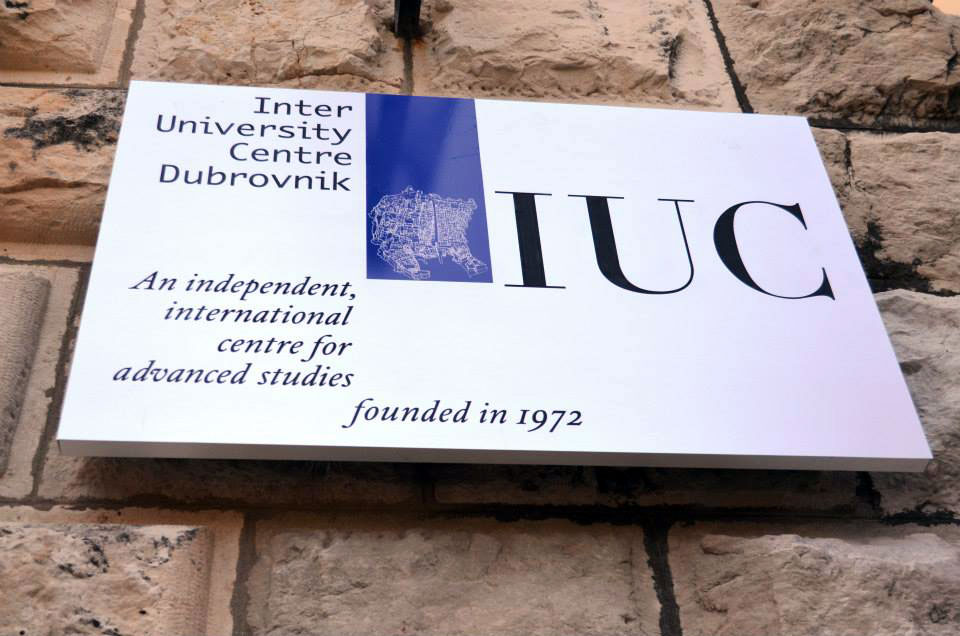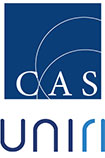

Letnja škola CAS-SEE centra Univerziteta u Rijeci: Notacija, algoritam, kritika: ka kritičkoj epistemologiji arhitekture (Notation, Algorithm, Criticism: Towards a Critical Epistemology of Architecture) će se održati u Inter-univerzitetskom centru (IUC) Dubrovnik u terminu od 17. do 22. septembra 2018. godine.
Rok za prijavu je 15. avgust 2018. godine.
Studentima Doktorskih akademskih studija Arhitektonskog fakulteta u Beogradu biće omogućeno u okviru izbornih predmeta priznavanje 3 ESPB boda ostvarenih na način na koji to organizator podrazumeva (detaljnije u uputstvima za učešće), dok studentima Master akademskih studija ovo može poslužiti za sticanje dodatnih kredita za vannastavne aktivnosti.
Opis letnje škole / Summer School Description:
In modernity, there is no place for architecture without critical reflection, just as modern culture without cultural criticism is no better than the barbarism it has replaced (Schnädelbach). Critique is necessary of any activity, be it artistic, political, or scientific. In 1976, it was the „crisis of utopia” that laid the foundation for the late Manfredo Tafuri’s “ideological criticism”.
By contrast, the philosopher and politician Massimo Cacciari maintained that crisis “must be produced”, thus proclaiming that any intellectual position that does not posit itself as productive in regard to crisis is reactionary.
Admittedly, we look back today with a certain nostalgia on a critical theory of architecture as it emerged in the 1960s — the heyday of critical thought in sociology and philosophy. Architects such as Peter Eisenman, Frank Gehry, and Bernhard Tschumi along with philosophers such as Theodor Adorno, Jacques Derrida, Gianni Vattimo, and Fredric Jameson were among the pioneers of critical discourse in architecture. Each had their own specific critical agenda, with some of them more inclined toward subversive methods that aimed at undermining architecture as the last stronghold of metaphysics. In architecture, critical theory always coincides with critical practice.
Since then, criticism has been absorbed and utilized by the very same institutions that it had helped to create. It can hardly be overlooked that in digital consumer societies, criticism has become a powerful economic agent. “The task of criticism has, in fact, changed,” Tafuri wrote in the introduction to his seminal book Theories and History of Architecture, published in 1976. But even more has changed with the advent of digital media technology. In unprecedented ways, today’s media technologies interfere with the practice of knowledge and change them according to their own – digital – agenda. Cacciari’s plea for crisis as a driving force for the production of knowledge has turned into a common cultural practice.
The seminar will address the concept of critique in architecture from a historic as well as contemporary perspective. It will investigate core concepts such as critique and practice, authorship and agency, history and documentation, concept and diagram, as well as idea and project. What are the possibilities of critical practice today in the age of digital transparency? What are the cultural, aesthetic, and social implications of the current transition from 2-D design processes to 3-D modeling (BIM)? Is this shift to digital media technology of equal importance as Alberti’s 15th century shift to notation?
The transfer of ideas into drawings onto paper first opened up architecture to the creative and intellectual play of representation, and allowed for references to architectural history and its philosophical ideas. Architectural practice turned into a critical practice when it separated thinking about architecture from building architecture. The potential of graphic notation transformed architecture into a modern, ambivalent, contradictory, and critical cultural practice equal to literature and philosophy. At times, it seems as if media technology hollows out architecture’s critical consciousness and returns it to a simple practice of mere physical and material presence.
Predavači:
Prof. Snježana Prijić-Samaržija (University of Rijeka)
Prof. Joerg Gleiter (Technical University of Berlin)
Prof. Petar Bojanić (University of Belgrade/University of Rijeka)
Prof. Sanja Bojanić (University of Rijeka)
Prof. Alessandro Armando (Politecnico di Torino)
Dr. Lidia Gasperoni (Technical University of Berlin) (TBC)
Prof. Renata Stih/Dr. Frieder Schnock (Beuth University of Applied Arts, Berlin) (TBC)
Dr. Christoph Engemann (Bauhaus-Universität Weimar) (TBC)
Course instructions for students / participants
NOTE: Participants should prepare 20-minute-long presentations on topics of their research and allow a further 10 minutes for discussions following course descriptions. The titles of the presentations with short abstracts need to be sent following this link (https://www.iuc.hr/course-details.php?id=1134).
* ECTS points are available for MA and PhD students. The requirements for ECTS credits are (i) participation in at least 80% of all lectures, (ii) presentation of a previously prepared original paper on the topic of the course or discussion papers on the papers provided by lecturers. The organizers will prepare the official IUC certificate, which will include a detailed overview of the students’ obligations (sufficient for 3 ECTS). Whether ECTS will be recognized as parts of their academic programs or as additional achievements in diploma supplements depends solely on the institutions that the students come from.
Ako želite da pohađate ovu letnju školu, molimo vas da se prijavite na ovom linku: IUC Dubrovnik.
Šta je CAS-SEE?
CAS-SEE (Centar za napredne studije jugoistočne Evrope – Center for Advanced Studies of Southeastern Europe) je organizaciona jedinica Univerziteta u Rijeci koja je specijalizovana za naučna istraživanja u društvenim i humanističkim naukama.
Centar je zamišljen kao centar naučnih aktivnosti na visokom nivou, koji će podstaći javne rasprave od velikog društvenog značaja za region i Evropu.
Vizija Centra je da promoviše slobodu istraživanja i da obezbedi neophodne preduslove za inovativan, intelektualan i naučni razvoj, kao i jačanje transnacionalne i regionalne naučne saradnje u socijalnim pitanjima kao što su ljudska prava, pravda, demokratija i javna politika, kao i druga važna pitanja ljudskog suživota.
Centar je dobio snažnu podršku od Evropske mreže centara za napredne studije, i prva je regionalna, naučna ustanova koja je počela realizaciju punopravnog članstva u ovoj mreži.
CAS-SEE je dobio podršku Ministarstva nauke, obrazovanja i sporta Republike Hrvatske, i potvrđena je saradnja nekoliko naučnih ustanova u regionu (Slovenija, Bosna i Hercegovina, Srbija, Crna Gora, Makedonija i Turska).







